The Great Kuki Rebellion of 1917-1919 was a defining event not only for the Kukis but for all Manipuris as well. It was the finest hours of the Kuki nation, because of the very fact that the military juggernaut of the mighty British Empire was kept at bay for full two years by bands of Kuki warriors. The British troops were ambushed, harassed, picked off, booby-trapped, and tormented at will by the tenacious Kukis in the hill areas like Apache or Sioux Indians.
The image of the British Raj and her much vaunted army was shattered. For all the Manipuris, the debacle at Khongjom was more than avenged. The British then realised that they could be defeated as well. The realm was up in arms, for they then realised that they lurked a tribe of sturdy, resilient and martial race called the Kukis in the foothills of lower Himalayas.
The British threw in all their resources for a quick subjugation of an ill-equipped hillsmen but it took a full two year with the greatest of difficulties logistically imaginable to finally bring an end to a rebellion of a great significance unheard of since the Sepoy Mutiny of 1857. The British claimed a military victory, which actually should be more of political and administrative victory with the brute military showmanship.
Even if it was recorded by the British (military) historians as a full military victory, (remember, history is written by the victors), it certainly was a pyrrhic victory. In short, the Britishers' gains (with their heavy losses) did not justify the means for the crown. The heavy price paid by the crown was best recorded in 'The History of Assam Rifles' by the then DIGAR, WJ Shakespeare (not the one from Avon, nor related) who himself was directly involved in the overall military operations, thus: "It (the Kuki Rebellion) therefore grew into the largest series of military operations conducted on this side of India since the old (full-scale) Expeditionary days Generals Penn Symonds and Tregear in the late (eighteen) eighties, or the futile Abor Expedition of the 1911-12, eclipsing them all in casualties and arduousness of active service".
Nothing could be truer than this description. However, what Col. Shakespeare failed to mention was the very fact that the Great Kuki Rebellion of 1917-19 was the longest, largest, costliest military operation in the whole of India since the Sepoy Mutiny of 1857. It was also an absolute logistical nightmares for field commanders and inexperienced officers; that was exactly why 2000 fully armed soldiers, later on reinforced by over 5000 soldiers including Burma military armed police, took two full years, which was an eternity for the mighty Britishers vis-a-vis the size and status of the enemy, to subdue about 2000 Kuki militiamen with just about 1500 one-shot muskets and a 100 or so mountain guns but without adequate gunpowder and extra parts.
The sights of tenacious Kuki warriors picking out targets and stealth ambushes and resorting to scorch earth tactics would have been a demoralizing reminiscence of the Napoleon's Grand Armee' harassed and tormented by the Russians to the field observers in the first part of the rebellion. It was first armed jungle 'Guerrilla Warfare' faced and experienced by the British army in British India, a modern day equivalent of the Shivaji's Marathas and the Spanish rebels (which the great all-conquering Napoleon dubbed 'his Spanish Ulcer'). The Kuki warriors were undoubtedly the Crown's ulcers, which remained unremedied for two years during the height of her glorious days.
The skirmishes were sharp and bloody. For young British officers, even field commanders, it was baptism by fire, a real live battle inoculation and an agonizingly unforgettable experience, which put them in good stead 20 years hence. The hard-earned lessons learned by those young officers and infantrymen barely out of their teens who eventually experienced the perils and miseries not taught, nor even acknowledged at the Sandhurst, nor instructed even at the West point for that matter, were nearly forgotten over the decades of peace.
The ingenious and most enterprising military tactics and finer points of guerrilla warfare learned from the resilient Kuki warriors over two years period and successfully improvised by the British field officers and operational commanders was finally put to maximum use after the Burma Retreat (1942) whey they, and the Americans too, were routed and overran by the Japanese Imperial Army in South East Asia in just too months period. The junior young officers and all ranks who suffered tactical setbacks at the hands of the Kuki militiamen during the height of the Great Kuki Rebellion and who also learned the 'art' of maximizing the most minimum resources perfected so successfully by the Kuki provisional army in so many stunning occasions were the senior field officer and operational commanders in mainland Europe and North Africa.
Desperate situation calls for desperate measures. Veterans of the Kuki Rebellion of 1917-19 were summoned by Lord Archibald Wavel along will the legendary Brig. Wingate (later on Maj Gen Orde Wingate of Burma fame) to train British (chindits) and Americans officers (Kachin Rangers) in the jungles of Assam and Manipur hills, especially the war operational areas of the Kuki Rebellion, to confront the much lesser forces of the jungle warfare experts Japanese Imperial Army on their own ground and in their own chosen conditions. The chindits and the American Kachin Rangers successfully tormented and demoralized the much larger Japanese ground forces in small numbers of not more than 30-35 specially trained real commandos. Like the small band (15-20) Kuki warriors who were excellent shots, the chindits and the American Rangers knew that the less the number, the lesser the targets (from enemies), the swifter the tactical retreats, the more the operations and the more the division of resources. The Kukis had always attacked in small numbers with stunning outputs, spreading their warriors to greater logistical field of operations, thereby totally confusing the war office at home as to the real number of the Kuki militiamen, and therein successfully stretching the limited resources and manpower.
The Kukis rebels would snared unwary British columns into a narrow pass or battle-field in the hilly areas and cut loose the netted big stones and boulders along the slope, thereby surprising them with deadly enterprising tactics, and then also cutting off the only small route for a retreat and reinforcement(s) from the British command Hqtrs. After pinning down the army column with death and injuries all around, the Kuki rebels peppered them with a remarkably well-directed volleys of incessant gunshots. On other occasions, the unwary British columns were most often than not 'welcomed' with home-made canons, mountain guns, with full of shrapnel. Therefore, a Kuki musket section would picked them off methodically from vantage positions with maximum 'returns', these Kuki warriors were arguably the first regular snipers in the history of Manipur.
The factual historical unrecorded fact pertaining to the early successes of the Kukis were due to the very fact that unlike the British troops, the Kuki marksmen never wasted even an ounce of gun power and bullets. One of the two most remarkable military tactics was that the Kuki rebels would always picked off/target the British and Indian officers and they preferred to cause serious injuries to the enemies so as to demoralize leaderless troops who invariably would remained confused and undecided. And then to seriously wound the infantrymen with another two less ready combat soldiers, for an injured needed to be tended and carried around. A dead soldier can be left behind buried but an injured cannot be abandoned. Moreover, the more the wounded or injured the slower the peace of their movement.
The idea was that if you killed 20 soldiers out of 50, the rest 30 would come running down one's neck but to injured even 10 soldiers would mean only 10 men could ran after the ambushers. Another deviously successful tactic, which was put to good use by the American Kachin Rangers during WW (II), was to put sharpened stakes planted under cover on either side of the road or jungle route, so when the Kuki rebels sent volleys of shots at the British troops, the soldier would automatically dive on either side of the road (nullah), with indescribable effects. Because of this, the Kukis were the only nation, which was defeated outrightly in open battlefield militarily by the great British Empire. All the Kuki leaders/commanders were treacherously invited to capitulate with a promised general amnesty, with a dire threat that all Kuki men, women and children and their settlements would be destroyed mercilessly. However, they were all tried as war criminals and ruthlessly sentenced to long years of rigorous imprisonment.
The war was brought to an end on 20th May, 1919, the losses received by the British army were:-
Killed in Action Wounded in Action
British officer 02 05
Indian officer 02 02
British sepoys 30 100
Indian sepoys 34 47
The total number of those British soldiers who died due to wounds, injuries and other diseases were officially recorded as 477. Though Though the Britishers won the war, the Kuki nation, with its sheer courage, tenacity and resilient, could and did claim full moral victory. In this great Kuki Rebellion of 1917-19, honours were even. The Kukis were subdued during and in their finest moment in history.
Apr 26, 2007
KUKI LEBENSRAUM
Today, the kuki are hardly remembered as the same people who had played prominent roles at various juncture of history. They are the people whose past had been a story of warlords, Chieftains, heroic struggles and sacrifice. They are perhaps denied the place they deserve in the history, particularly of the recent past.
Perverted minds have projected the Kukis as a people with no significant history. This is utter nonsense, and rather a manipulation of historical facts. The Kukis should be given a fair deal before such distortion of history crosses the limit. There is hardly any serious acknowledgement of the existence of kuki living space or lebensraum. This might be owing to lack of information or lack of enthusiasm on the part of academics and others concerned.
Kuki lebensraum is the 'land of freedom', a land where one can freely move about. The linguistic survey of India, Vol. III, part III, by G.A. Grierson, published in 1904 by government of India, provides a general idea of the geographical spread of kukis' living space. An excerpt is reproduced as follows:
"Territory inhabited by the kuki tribes extends from the Naga Hills in the North down into the Sandoway district of Burma in the south; from the Myattha River in the east, almost to the Bay of Bengal in the west."
Who are the Kukis?
The tribes Aimol, Anal, Chiru, Chongloi, Chothe, Hangsing, Doungel, Gangte, Guite, Haokip, Hmar, Kipgen, Kom, Lhungdim, Lamkang, Lunkim, Changsan, Lenthang, Thangeo, Kolhen, Lhangum, Lhanghal, Milhem, Maring, Mate, Mozo-Monshang, Paite, Sitlhon, Lhouvum and Singsit, Simte, Baite Tarao, Touthang, Vaphei, Zou etc., may loosely be put under one egalitarian ethnic entity called Kukis.
However, some of these tribes mentioned above have been assimilated into Naga. This is because of a fear psychosis perpetrated by the bloody ethnic cleansing carried out by the National Socialist Council of Nagaland (NSCN-IM). However, they are racking back their genealogy to define themselves as Kuki or Naga.
Freedom and Sovereignty was what Kukis possessed in their land. Their territory stretch from the Chindwin River in the east, the Naga Hills in the north, North Cachar Hills in the west and the Chittagong hill tracts in the south. Until about a century ago these hills were not largely populated. The Kukis reigned supreme over these hills and moved about freely as an eagle in flight.
The erstwhile kuki lebensraum, as indicated earlier, still remains identifiable. By signing the treaty of 1834, the British handed over a huge part of it to Burma (Myanmar), only in order to appease the Burmese king. The kukis resisted the British advance into the Chittagong hills and lower Assam during 1840s to 1860s. But they could not withstand the colonial might and were pushed into the eastern interiors. Nevertheless, every now and then the kukis continued to menace the British imperialistic designs. Therefore, the British instituted a boundary commission to weaken kuki, and so ignoring their living space, demarcation between Manipur (India) and Burma came into effect in 1898. By this demarcation the kukis were put under two separate administrations and their territory was dismembered.
During First World War, the Kukis started rising with a new vigour against the British, whish lasted for here years (1917-1919). This time, too, the kukis could not do any substantial damage to the mighty British Empire. They suffered untold miseries and vigorous repression at the hands of the British. Then, in the early 1940's, hundreds of kukis joined the Indian army(I) and fought the British, yet again. More than one hundred and fifty ina pensioners are still alive.
Both India and Burma were given political emancipation in 1947. Even then the same political dispensation of the British raj continued. Administrative arrangements of the previous colonial regime became the edifice upon which the new orders were built. The boundary lines of the new nations and their states fragmented the entire kuki lebensraum. This is a tragic reality. To make matters worse a series of ill conceived, half-hearted, myopic, legislations and policies made things worse for the kukis, both in India and Myanmar.
The state law and order restoration committee (SLORC) of Myanmar have been exacting forced labour from the kukis in the Kabow Valley. Many kukis have been dispossessed of their land by the Myanmar army; for instance, waksu village was completely wiped out in 1992. In 1967, the government of the revolutionary council, headed by Ne-Win, severely punished 20,000 kukis in the 'Khadawmi operation'. This operation, which was led by U Muangi, was carried out under the pretext that these kukis were holding bogus national registration and family registration cards.
Consequently, many kukis were forced to leave Burma even though they were natives of the country. In the beginning of 1993, Nung Kam , a kuki village was burnt and bulldozed, and in its place, 'Saya San Ywo', a new military settlement was set up. The ostensible reason for this was that kukis refused to convert to Buddhism. The kuki students' democratic front, Burma, has been highlighting these human rights violations committed by SLORC. All these incidents of harassment and discrimination by the Myanmar military regime have been a matter of great concern.
In the recent past the Kukis entered a most gloomy phase when the NSCN-IM started its ethnic cleansing campaign against them, particularly in the hills of Manipur. This process of ethnic cleansing, which began in 1992, wiped out hundreds of Kuki villages and eliminated over a thousand innocent Kukis. The victims included prominent Kuki Chiefs, leaders and educated youths. This was perhaps done as a strategy to instill a kind of fear psychosis in the minds of all the Kukis.
The NSCN-IM also extracted land tax from the Kukis, even though they had inhabited the land since time immemorial. One can easily verify this truth from the folk tales and legends of the Meiteis, Mizos, Awas (Burmese), Tripuris and Ahoms (Assamese).
Discontentment, sufferings and frustration led the Kukis to resort to armed resistance. But, they are a people who really love to live in peace and dignity. They believe in communal harmony whether it is in the Indian states of Manipur, Nagaland, Assam, Tripura, Mizoram or in Myanmar (Burma).
Kukis armed insurgency movement is the result of cummulative effect of Naga insurgency coupled with its integration movement in North-East. Issues on Naga's territorial integration has created a serious problem in Kukis integrity in north-East. Now, kukis are tracing back their geneology with the help of Culture, Folk-tales etc. They can't forget age old Naga- Kuki clashes and ethnic cleansing. Any attempt to pamper Nagas at the cost of Kuki's interest will not be tolerated and may lead only to violent uprising. Home Ministry should put up the Kuki's problem on the table before Centre and NSCN(IM) peace talk. Only then, Centre can regain the gradually losing faith of peace loving Kukis.
In Conckusion:
Kuki identity should be protected,
Kuki dignity should be maintained
Kuki socio-politico-economic rights should be safeguared
Kukitradition and culture should be respected,and above all Kuki Lebensraum must be recognized.Then, and only then, will the Kukis be able to live in peace and dignity in their Lebensraum, i.e. between Chindwin(Myanmar) and Brahmputra (India).
Perverted minds have projected the Kukis as a people with no significant history. This is utter nonsense, and rather a manipulation of historical facts. The Kukis should be given a fair deal before such distortion of history crosses the limit. There is hardly any serious acknowledgement of the existence of kuki living space or lebensraum. This might be owing to lack of information or lack of enthusiasm on the part of academics and others concerned.
Kuki lebensraum is the 'land of freedom', a land where one can freely move about. The linguistic survey of India, Vol. III, part III, by G.A. Grierson, published in 1904 by government of India, provides a general idea of the geographical spread of kukis' living space. An excerpt is reproduced as follows:
"Territory inhabited by the kuki tribes extends from the Naga Hills in the North down into the Sandoway district of Burma in the south; from the Myattha River in the east, almost to the Bay of Bengal in the west."
Who are the Kukis?
The tribes Aimol, Anal, Chiru, Chongloi, Chothe, Hangsing, Doungel, Gangte, Guite, Haokip, Hmar, Kipgen, Kom, Lhungdim, Lamkang, Lunkim, Changsan, Lenthang, Thangeo, Kolhen, Lhangum, Lhanghal, Milhem, Maring, Mate, Mozo-Monshang, Paite, Sitlhon, Lhouvum and Singsit, Simte, Baite Tarao, Touthang, Vaphei, Zou etc., may loosely be put under one egalitarian ethnic entity called Kukis.
However, some of these tribes mentioned above have been assimilated into Naga. This is because of a fear psychosis perpetrated by the bloody ethnic cleansing carried out by the National Socialist Council of Nagaland (NSCN-IM). However, they are racking back their genealogy to define themselves as Kuki or Naga.
Freedom and Sovereignty was what Kukis possessed in their land. Their territory stretch from the Chindwin River in the east, the Naga Hills in the north, North Cachar Hills in the west and the Chittagong hill tracts in the south. Until about a century ago these hills were not largely populated. The Kukis reigned supreme over these hills and moved about freely as an eagle in flight.
The erstwhile kuki lebensraum, as indicated earlier, still remains identifiable. By signing the treaty of 1834, the British handed over a huge part of it to Burma (Myanmar), only in order to appease the Burmese king. The kukis resisted the British advance into the Chittagong hills and lower Assam during 1840s to 1860s. But they could not withstand the colonial might and were pushed into the eastern interiors. Nevertheless, every now and then the kukis continued to menace the British imperialistic designs. Therefore, the British instituted a boundary commission to weaken kuki, and so ignoring their living space, demarcation between Manipur (India) and Burma came into effect in 1898. By this demarcation the kukis were put under two separate administrations and their territory was dismembered.
During First World War, the Kukis started rising with a new vigour against the British, whish lasted for here years (1917-1919). This time, too, the kukis could not do any substantial damage to the mighty British Empire. They suffered untold miseries and vigorous repression at the hands of the British. Then, in the early 1940's, hundreds of kukis joined the Indian army(I) and fought the British, yet again. More than one hundred and fifty ina pensioners are still alive.
Both India and Burma were given political emancipation in 1947. Even then the same political dispensation of the British raj continued. Administrative arrangements of the previous colonial regime became the edifice upon which the new orders were built. The boundary lines of the new nations and their states fragmented the entire kuki lebensraum. This is a tragic reality. To make matters worse a series of ill conceived, half-hearted, myopic, legislations and policies made things worse for the kukis, both in India and Myanmar.
The state law and order restoration committee (SLORC) of Myanmar have been exacting forced labour from the kukis in the Kabow Valley. Many kukis have been dispossessed of their land by the Myanmar army; for instance, waksu village was completely wiped out in 1992. In 1967, the government of the revolutionary council, headed by Ne-Win, severely punished 20,000 kukis in the 'Khadawmi operation'. This operation, which was led by U Muangi, was carried out under the pretext that these kukis were holding bogus national registration and family registration cards.
Consequently, many kukis were forced to leave Burma even though they were natives of the country. In the beginning of 1993, Nung Kam , a kuki village was burnt and bulldozed, and in its place, 'Saya San Ywo', a new military settlement was set up. The ostensible reason for this was that kukis refused to convert to Buddhism. The kuki students' democratic front, Burma, has been highlighting these human rights violations committed by SLORC. All these incidents of harassment and discrimination by the Myanmar military regime have been a matter of great concern.
In the recent past the Kukis entered a most gloomy phase when the NSCN-IM started its ethnic cleansing campaign against them, particularly in the hills of Manipur. This process of ethnic cleansing, which began in 1992, wiped out hundreds of Kuki villages and eliminated over a thousand innocent Kukis. The victims included prominent Kuki Chiefs, leaders and educated youths. This was perhaps done as a strategy to instill a kind of fear psychosis in the minds of all the Kukis.
The NSCN-IM also extracted land tax from the Kukis, even though they had inhabited the land since time immemorial. One can easily verify this truth from the folk tales and legends of the Meiteis, Mizos, Awas (Burmese), Tripuris and Ahoms (Assamese).
Discontentment, sufferings and frustration led the Kukis to resort to armed resistance. But, they are a people who really love to live in peace and dignity. They believe in communal harmony whether it is in the Indian states of Manipur, Nagaland, Assam, Tripura, Mizoram or in Myanmar (Burma).
Kukis armed insurgency movement is the result of cummulative effect of Naga insurgency coupled with its integration movement in North-East. Issues on Naga's territorial integration has created a serious problem in Kukis integrity in north-East. Now, kukis are tracing back their geneology with the help of Culture, Folk-tales etc. They can't forget age old Naga- Kuki clashes and ethnic cleansing. Any attempt to pamper Nagas at the cost of Kuki's interest will not be tolerated and may lead only to violent uprising. Home Ministry should put up the Kuki's problem on the table before Centre and NSCN(IM) peace talk. Only then, Centre can regain the gradually losing faith of peace loving Kukis.
In Conckusion:
Kuki identity should be protected,
Kuki dignity should be maintained
Kuki socio-politico-economic rights should be safeguared
Kukitradition and culture should be respected,and above all Kuki Lebensraum must be recognized.Then, and only then, will the Kukis be able to live in peace and dignity in their Lebensraum, i.e. between Chindwin(Myanmar) and Brahmputra (India).
Subscribe to:
Comments (Atom)
ABOUT ME
- Letminlen Haokip
- New Delhi, Delhi, India
- Kalem Uve!I am a student from Delhi University,brought up this site to acknowledge the forgotten Past-herioc Kuki Warriors.I am dedicated and patriotic chap with perseverance to fight for the cause of the Kuki people.I would like to take this opportunity to cal all my comrades to come forward and express views and opinion pertaining to the Kuki socio-political promblems arising in our present generation.Come on!! TAH CHAPA'S ! TAH CHANU'S!!with a revolutionary attitude,militant in action and a nationalist in outlook to rescue the Kuki people shattered dreams of chaos,confusion and dis-integration Awake!! comrades,the KUKI nation needs you!!!!
ABOUT MUVANLAI
Muvanlai is synonimous with the Kuki people.Muvanlai literally means an "Eagle".An Eafle comfortably gliding over its territory without any restriction is an apt anology in order to get the correct meaning.This,precisely was what the Kuki-life in the past millenium.Freedom and sovereignity was what the Kuki posessed in their land,Zale'n-gam.
Recent Comments
SHOUTS
You are Visitor No.
"KATHANG"E KATHANG"E KANAM"

Muvanlai Poll
Count Down Timer
TRADITION ECHOES

Muvanlai Search Engine
KS0(S) Cultural Troupe

Muvanlai Sudoku
New way of Greeting:It happen only in Manipur
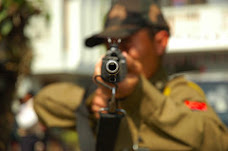
MUVANLAI ARCHIEVE
- Apr 22 - Apr 29 (2)
- Jun 3 - Jun 10 (1)
- Oct 28 - Nov 4 (3)
- Dec 2 - Dec 9 (1)
- Dec 9 - Dec 16 (7)
- Dec 16 - Dec 23 (1)
- Jan 6 - Jan 13 (1)
- Jan 20 - Jan 27 (1)
- Mar 2 - Mar 9 (1)
- Mar 23 - Mar 30 (2)
- May 25 - Jun 1 (1)
- Feb 15 - Feb 22 (1)
- Mar 22 - Mar 29 (2)
RECOMENDED SITE
- Kukiforum Network,USA
- Kuki Inpi(Government)
- Kuki Intern.Support Centre
- The Thadou-Kuki Langauge
- Kuki Baptist Convention
- Thadou-Kuki Langauge
- Kukis of NC Hills
- Kuki in Wikipedia
- NE TV Kuki News
- Kuki Christian
- KSDF Burma
- KNO Home Page
- Kuki Black Day
- KSO New Delhi
- KSO Mumbai
- KSO Bangalore
- KSO Kolkatta
- KSO Guwahati
- KSO Shillong
- KWS Bangalore
- KWS Delhi
- Kuki Gems and Jewellery
- Official Website of Manipur
- Jews of Manipur and Mizoram
- Ministry of Tribal Development
- Tamenglong District
- Churachandpur District
- Senapati (Sadar Hills) District
- Chandel District
- Ukhrul District
- Sangai Express
- The Hmar's Homepage
- The Vaiphei's Homepage
- Zo Students Association
- E-Pao News
- Kangla Online
- Zogam News
- ZSP Delhi
- The Anti-Tamanthi Dam Committee
- Electoral Maps of Manipur
- Manipur Bhawan
- Community Information Centre,Manipur
- Information, data and analysis on terrorism, low intensity warfare and sectarian strife in Manipur.
NORTH EAST SUPPORT CENTRE & HELPLINE
To assist North East Indians studing and working in Delhi and NCR.
Helpline Numbers:
Delhi West - 9810554901,
Delhi South - 9818314146,
Delhi North - 9911886062.
Central Coordinating
Helpline -9868184939
Fax 011-42811185
Email nesupportcentre@gmail.com,
Fax +911142811185
HOW TO FILE FIR
Simple way to file FIR
http://www.nehelpline.net/
Helpline Numbers:
Delhi West - 9810554901,
Delhi South - 9818314146,
Delhi North - 9911886062.
Central Coordinating
Helpline -9868184939
Fax 011-42811185
Email nesupportcentre@gmail.com,
Fax +911142811185
HOW TO FILE FIR
Simple way to file FIR
http://www.nehelpline.net/
THE KSOD MEGA RALLY

JUSTICE DELAY IS JUSTICE DENNIED
A KUKI COUPLE IN THE 18TH CENTURY

NAMPI KINEPNA K.S.O
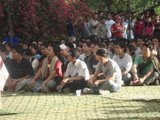
Grand reception of detained Kuki students at JNU for more than 72 hrs at Tihar Jail. the national capital by Delhi Police.The students were holding a peacefull rally against the arrest of 400 kukis by UNLF near Indo-burma border
SIMSAHEI PAHNA ZOUGAM NOM

AW! PENNA THINGLHANG GAMNOUM

HAVE MERCY ON US! O MOTHER INDIA!!

BOOKS ON THE KUKIS
- The Lost Tribe of Isreal
- The Thadou-Kukis : William Shaw
- The Kukis of Manipur:By Dr.T.S Gangte
- Kuki Disturbances in Tripura, 1860-61 By:Nalini Ranjan Roychowdhury
- Souvenir : The Benei Menashe Council, India By:L Henkhogin Haokip
- The Kukis of Tripura : a socio-economic survey By:Ram Gopal Singh
- A hand book of Kuki custom:By C.G Crawford
- The Lushia-Kuki Clans By Lt.Col William J.Shakespear
- In search of identity: By H Khamkenthang Kuki-Chin Baptist Union
- The Indigenous World 2002-2003 By Diana Vinding
- Low Intensity Conflicts in India: An Analysis By Vivek Chadha
- Human Rights in the New World Order By Shamsi, Nayyar
- The Inductions of Ethics and the Ethics of Individual Life By Herbert Spencer
- Tribal Situation and Development in Central India By Shiv Kumar Tiwari
- The Anthropology of North-East India: A Textbook By Tanka Bahadur Subba, G. C. Ghosh
- Unrepresented Nations & Peoples Organization, Yearbook 1995 By Mary Kate Simmons
- Hill Politics in North-east India By Shibani Kinkar Chaube
- The Sino-Tibetan Languages By Graham Thurgood, Randy J. LaPolla
- History of Human Marriage Part 3 By Edward Westermarck
- Politico-Economic Development of the Tribals of Manipur: A Study of the Zomis By Guite, Chinkholian
- Social Movements in North-East India By Mahendra Narain Karna
- The Schedule Tribes of India
- Land Rights of the Indigenous Peoples of the Chittagong Hill Tracts, Bangladesh By Rajkumari Chandra Roy
- The Purums: An Old Kuki Tribe of Manipur : By Tarakchandra Das
- Authority and Legitimacy: A Study of the Thadou-Kukis in Manipur By Asok Kumar Ray
- WHY MUST WE BE MIZO? By Priyadarshni (alias Tingneihoih) M. Gangte
- Between Ethnography and Fiction: Verrier Elwin and the Tribal Question in India By Tanka Bahadur Subba, Sujit Som, K. C. Baral
- Policing India in the New Millennium By P. J. Alexander
- Indian and Oriental Armour By Lord Egerton, Wilbraham Egerton Egerton, Indian Museum
- Unfamiliar relations: Family and History in South Asia
- Encyclopaedia of Indian Tribes By Shyman Singh Shashi
- Miscellaneous Papers Relating to Indo-China By Reinhold Rost
- An ethnographic survey of the Kuki-Chin-speaking peoples of the Assam-Burma border
- The North East Frontier 1837-1901 ByIan Heath
- Bleeding Manipur: By Phanjoubam Tarapot
- My Experiences in Manipur and the Naga Hills By James Johnstone
- My Experiences in Manipur and the Naga Hills By James Johnstone
- India and the World: Selected Articles from IDSA Journals By N. S. Sisodia, Sujit Dutta
- Miscellaneous Notes on the Kuki of the Chittagong Hill Tracts, Pakistan By:Claude Levi-Strauss
- Origin and Growth of Christianity in Tripura: With Special Reference to the ... By Sukhendu Debbarma
- A short account of the Kuki-Lushai tribes on the north-east frontier : (districts Cachar, Sylhet, Nága Hills, etc., and the north Cachar Hills), with an outline grammar of the Rangkhol-Lushai language and a comparison of Lushai with other dialects
UNITY IN DIVERSITY

ARE WE THE LOST TRIBE OF ISREAL??

The Kuki National Flag with a David Star
KUKI ARMED MOVEMENT
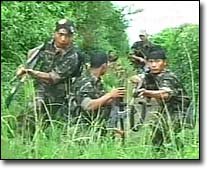
"result of india's ignorance for acknowledging the Kuki indigeneous space"
KUKI BEAUTY ON THE RAMP
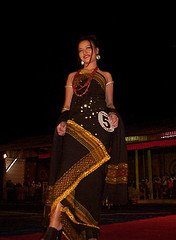
Miss Kut
HEAR OUR CRIES !!!! MR.SMS! (SARDAR MANMOHAN SINGH)
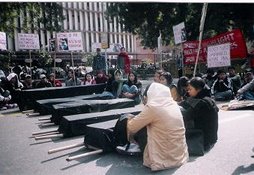
The KSOD COFFIN RALLY
DO INDIA LOVE COMMUNALISM???
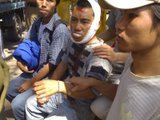
Injured Kuki students at RML hospital,brutually lathicharged by Delhi Poice
A NEW HOPE, A NEW DREAM FOR THE KUKIS

WE WANT REFERENDUM!!!!!!!!

MARCHING TO THE CALL OF NATION

MOL LE LHANG SANG JONG NAMPI THUPEH JUI LOU THEI KAHI POUVE

DO THE KUKIS HAVE FAITH ON THE INDIAN DEMOCRACY?


WE WANT JUSTICE AT ANY COST

YOUTH OF THE NATION

KUKI VIP"S AND NEWS MAKER
HIS EXCELLENCY
PU.SHEHKHOLEN KIPEN,IFS
INDIAN AMBASSADOR TO UKRAINE
http://www.indianembassy.tj/english/about_us/posolstva_sng.htm
SMT.NENGCHA LHOUVUM
INDIAN AMBASSADOR TO LEBANON
http://mea.gov.in/pressrelease/2004/10/18pr02.htm
MR.ZAI KIPGEN
http://www.rediff.com/sports/2001/sep/01golf.htm
PU W.L HANGSHING,IAS
http://persmin.nic.in/CivilList/AsOnToday/QryProcessCLNew.asp#Bottom
PU.SHEHKHOLEN KIPEN,IFS
INDIAN AMBASSADOR TO UKRAINE
http://www.indianembassy.tj/english/about_us/posolstva_sng.htm
SMT.NENGCHA LHOUVUM
INDIAN AMBASSADOR TO LEBANON
http://mea.gov.in/pressrelease/2004/10/18pr02.htm
MR.ZAI KIPGEN
http://www.rediff.com/sports/2001/sep/01golf.htm
PU W.L HANGSHING,IAS
http://persmin.nic.in/CivilList/AsOnToday/QryProcessCLNew.asp#Bottom
MEDIA COVERAGE ON KUKI & NE OUTFIT ACTIVITIES
KUKI OUTFIT DEMANDS STATEHOOD:
EXCLUSIVE VIDEO COVERAGE WITH A KUKI OUTFIT
http://www.ibnlive.com/videos/23463/kuki-outfit-demands-statehood.html
WE BELIEVE IN BEING INDIAN : KNO
EXCLUSIVE INTERVIEW WITH IBN Live
http://www.ibnlive.com/news/we-believe-in-being-indian-kno/23601-3-p2.html
THE FORGOTTEN INSURGENCY :UKLF
TIMESNOW EXCLUSIVE INTERVIEW
http://www.timesnow.tv/Newsdtls.aspx?NewsID=3130
MONEY CAN'T HELP MANIPUR:CAUGHT BETWWEN THE UNLF AND NSCN(IM) IS THE KUKI TRIBE
http://www.ibnlive.com/news/ethnic-crisis-ruining-manipur-economy/23400-3.html
KUKI ULTRAS ATTACK IRB CAMP: NDTV
http://www.ndtv.com/convergence/ndtv/story.aspx?id=NEWEN20070015384
KUKI REBELS UNITE AGAINST COMMON ENEMY
Kishalay Bhattacharjee reports for NDTV from Guwahati
http://www.ndtv.com/convergence/ndtv/story.aspx?id=NEWEN20070008295
NAXALS : UNITED IN VIOLENCE
http://www.ndtv.com/convergence/ndtv/story.aspx?id=NEWEN20070008293
BBC NEWS REPORTS ON KUKI ACTIVITIES
http://search.bbc.co.uk/cgi-bin/search/results.pl?tab=all&q=KUKI%252CKUKIS&start=1&scope=all&go=homepage
MANIPUR GROUP REJECTS IDEA OF INDIA:
INSIDE THE CAMP OF UNLF
http://www.ibnlive.com/news/manipur-group-rejects-idea-of-india/23540-3.html
NSCN(IM) DRAWS YOUTH BY HORDES:IBN Live
INSIDE CAMP HEBRON,NSCN(IM) GHQ
http://www.ibnlive.com/news/nscn-im-draws-youth-by-hordes/23704-3.html
WE WILL FIGHT INDIAN FORCES:UNLF CHIEF
EXCLUSIVE INTERVIEW WITH SANAYAIMA
http://www.ibnlive.com/news/we-will-fight-indian-forces-unlf-chief/23346-3-0.html
BODOS RESTIVE AS GOVT KEEPS MUM
CNN-INB Live WITH GEN.SECY NDFB
http://www.ibnlive.com/news/bodos-get-restive-as-govt-keeps-mum/23630-3.html
EACH NAGA VILLAGE IS A REPUBLIC:NSCN
http://www.ibnlive.com/news/each-naga-village-is-a-republic-nscn/23236-3.html
GEN V.S ATEM ON NAGA ASPIRATIONS
http://www.ibnlive.com/news/gen-v-s-atem-on-naga-aspirations/23182-3.html
NO HEADWAY IN GOVT.NSCN(IM) TALKS
http://www.ibnlive.com/news/no-headway-in-govt-nscnim-talks/24557-3.html
MANIPUR MINISTER ESCAPE MILITANT ATTACK
http://www.ndtv.com/convergence/ndtv/story.aspx?id=NEWEN20070021929
EXCLUSIVE VIDEO COVERAGE WITH A KUKI OUTFIT
http://www.ibnlive.com/videos/23463/kuki-outfit-demands-statehood.html
WE BELIEVE IN BEING INDIAN : KNO
EXCLUSIVE INTERVIEW WITH IBN Live
http://www.ibnlive.com/news/we-believe-in-being-indian-kno/23601-3-p2.html
THE FORGOTTEN INSURGENCY :UKLF
TIMESNOW EXCLUSIVE INTERVIEW
http://www.timesnow.tv/Newsdtls.aspx?NewsID=3130
MONEY CAN'T HELP MANIPUR:CAUGHT BETWWEN THE UNLF AND NSCN(IM) IS THE KUKI TRIBE
http://www.ibnlive.com/news/ethnic-crisis-ruining-manipur-economy/23400-3.html
KUKI ULTRAS ATTACK IRB CAMP: NDTV
http://www.ndtv.com/convergence/ndtv/story.aspx?id=NEWEN20070015384
KUKI REBELS UNITE AGAINST COMMON ENEMY
Kishalay Bhattacharjee reports for NDTV from Guwahati
http://www.ndtv.com/convergence/ndtv/story.aspx?id=NEWEN20070008295
NAXALS : UNITED IN VIOLENCE
http://www.ndtv.com/convergence/ndtv/story.aspx?id=NEWEN20070008293
BBC NEWS REPORTS ON KUKI ACTIVITIES
http://search.bbc.co.uk/cgi-bin/search/results.pl?tab=all&q=KUKI%252CKUKIS&start=1&scope=all&go=homepage
MANIPUR GROUP REJECTS IDEA OF INDIA:
INSIDE THE CAMP OF UNLF
http://www.ibnlive.com/news/manipur-group-rejects-idea-of-india/23540-3.html
NSCN(IM) DRAWS YOUTH BY HORDES:IBN Live
INSIDE CAMP HEBRON,NSCN(IM) GHQ
http://www.ibnlive.com/news/nscn-im-draws-youth-by-hordes/23704-3.html
WE WILL FIGHT INDIAN FORCES:UNLF CHIEF
EXCLUSIVE INTERVIEW WITH SANAYAIMA
http://www.ibnlive.com/news/we-will-fight-indian-forces-unlf-chief/23346-3-0.html
BODOS RESTIVE AS GOVT KEEPS MUM
CNN-INB Live WITH GEN.SECY NDFB
http://www.ibnlive.com/news/bodos-get-restive-as-govt-keeps-mum/23630-3.html
EACH NAGA VILLAGE IS A REPUBLIC:NSCN
http://www.ibnlive.com/news/each-naga-village-is-a-republic-nscn/23236-3.html
GEN V.S ATEM ON NAGA ASPIRATIONS
http://www.ibnlive.com/news/gen-v-s-atem-on-naga-aspirations/23182-3.html
NO HEADWAY IN GOVT.NSCN(IM) TALKS
http://www.ibnlive.com/news/no-headway-in-govt-nscnim-talks/24557-3.html
MANIPUR MINISTER ESCAPE MILITANT ATTACK
http://www.ndtv.com/convergence/ndtv/story.aspx?id=NEWEN20070021929
NEWSPAPER AND MAGAZINES
THE TIMES OF INDIA
THE HINDUSTAN TIMES
DECCAN CHRONICLE
THE STATESMAN
KASHMIR TIMES
THE MID-DAY
THE WEEK
THE INDIAN EXPRESS
THE ASIAN AGE
NEW YORK TIMES
THE TRIBUNE
WASHINGTON POST
THE AFTERNOON
INDIA TODAY
THE HINDU
KASHMIR MONITOR
THE NORTH EAST TRIBUNE
REDIFF ON THE NET
OUTLOOK
FRONTLINE
THE PIONEER
DECCAN HERALD
THE SENTINEL ASSAM
THE TELEGRAPH
NAGALAND POST
KANGLAONLINE.COM
MORUNG EXPRESS
E-PAO NET
THE SANGAI EXPRESS
NAGALAND PAGE
